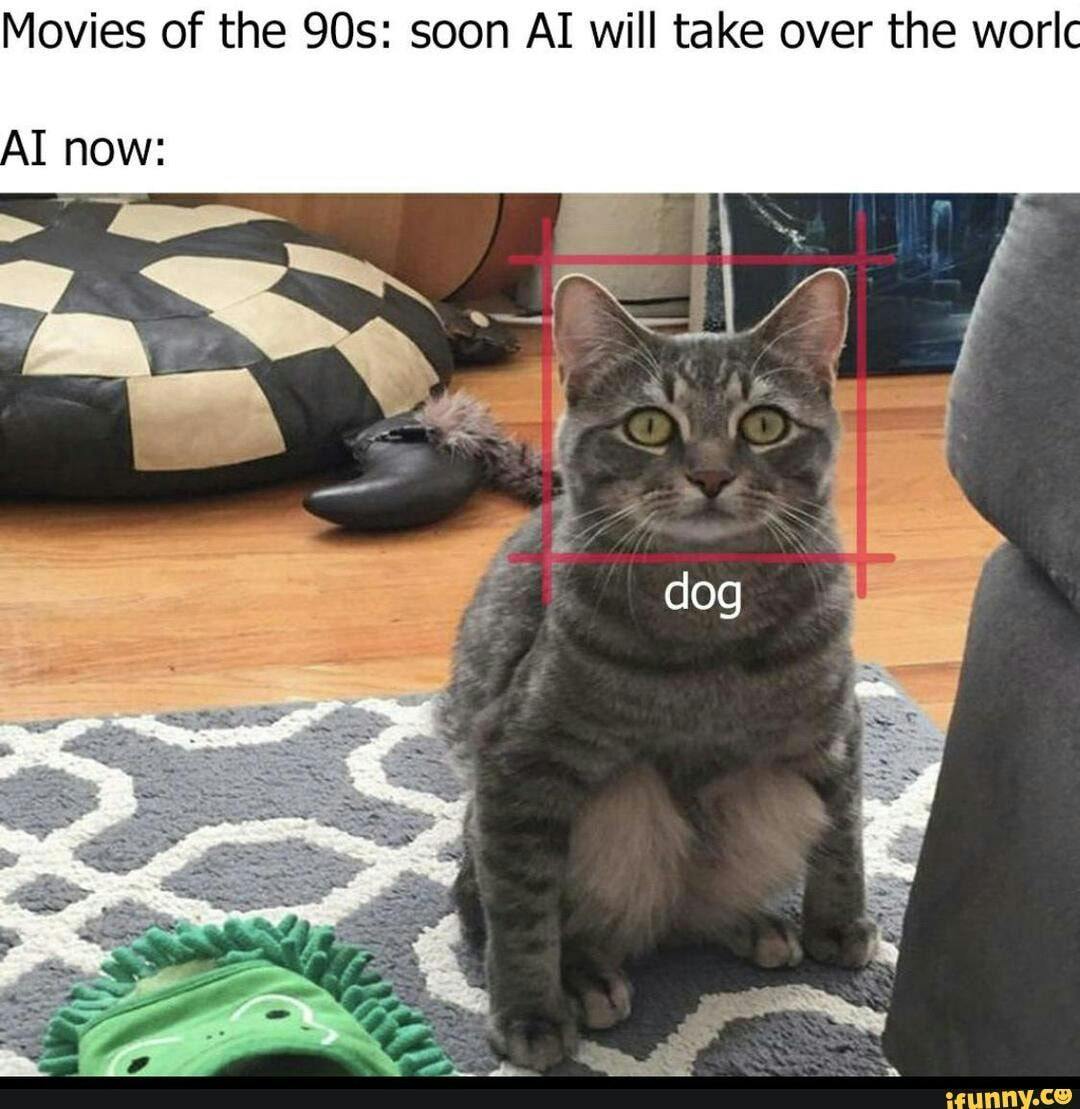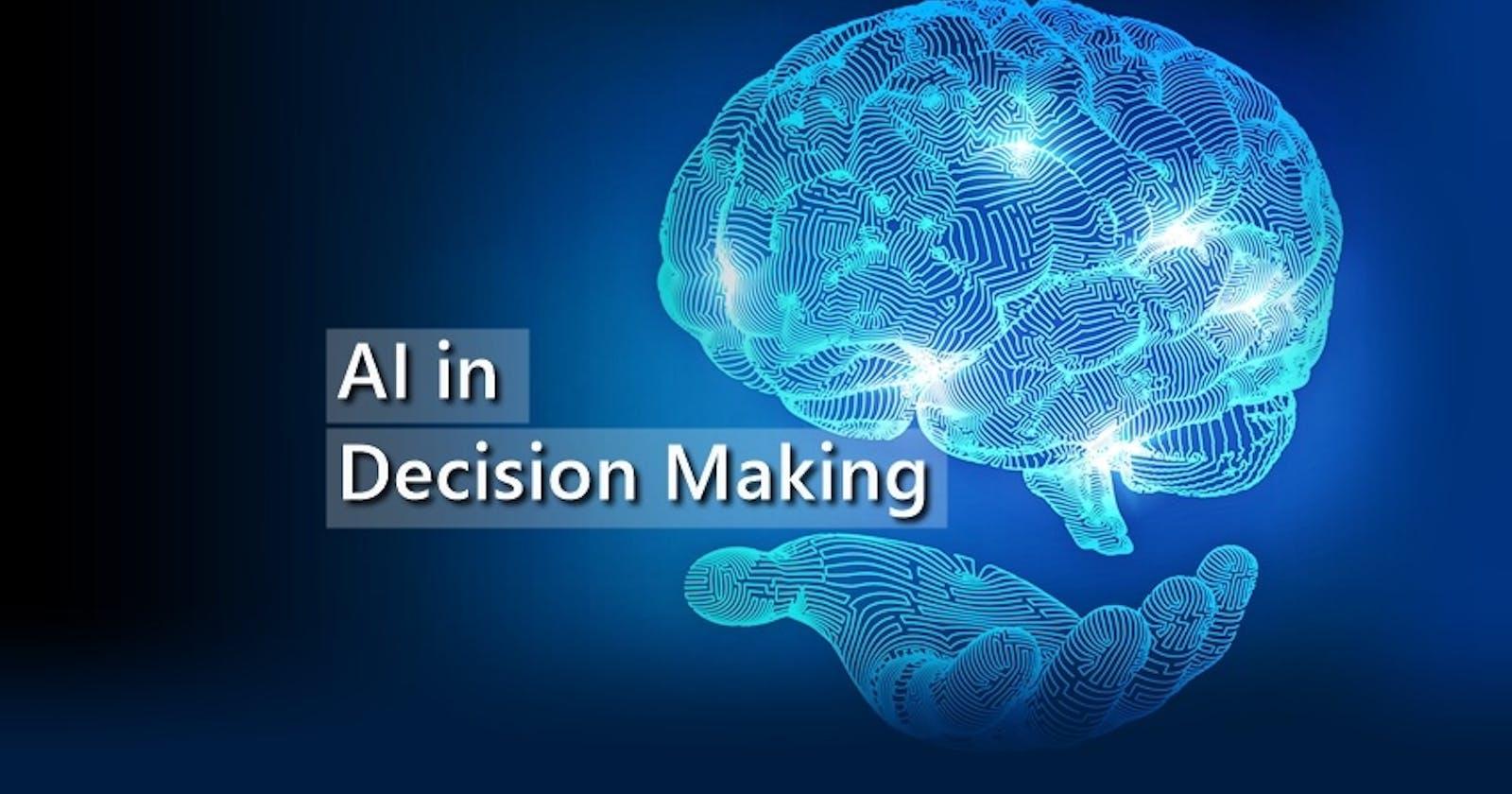The role of Artificial Intelligence in improving Decision-making and Unmaking tasks.
Alright, so you all have utilized and used ChatGPT(a newly AI-powered tool for answering your questions) you all have wondered How far has Artificial intelligence progressed in decision-making and Automaking tasks. So Today in this article we are going to explore some aspects of how much progress has AI made in decision-making. So let's get started.🐱🏍

How AI helps in Decision making.🤖

Technology in 2019 is moving at the speed of light. Immense breakthroughs in the field of deep learning and machine learning have allowed machines to process and analyze information in ways that we could never have imagined. With its incredible ability to analyze data for drawing valuable insights, AI is driving decision-making today.
Finding ways to save time by making faster decisions you feel confident in is always valuable. AI can do this for you. AI works alongside various technologies to aid machines in making those decisions faster than the ability of human workers. In turn, actions are carried out quicker also.
The more decisions AI makes, the more it has to pull from for future decision-making, improving the process.
Artificial intelligence (AI) has the potential to significantly improve decision-making and automate tasks in several ways :
One way AI can improve decision-making is by using machine learning algorithms to analyze large amounts of data and identify patterns and trends that might not be immediately apparent to humans. This can help organizations make more informed and accurate decisions by providing them with a better understanding of their data and the factors that may influence outcomes.
AI can also be used to automate tasks by using algorithms to perform tasks that would otherwise be done manually. This can help organizations save time and resources, as well as reduce the risk of human error. For example, AI can be used to automate customer service tasks, such as answering frequently asked questions or identifying and resolving issues with orders.
In addition to these benefits, AI can also help organizations make more efficient use of their resources by identifying areas where they can streamline processes or optimize the use of their assets. By analyzing data and identifying patterns, AI can help organizations identify opportunities to improve their operations and make better use of their resources.
Overall, AI has the potential to significantly improve decision-making and automation in a variety of industries and organizations, helping them to operate more efficiently and effectively.
Fast Fact: The first artificial intelligence is thought to be a checkers-playing computer built by Oxford University (UK) computer scientists in 1951.
AI- A Boon to Buisness. ✨

The world is about to witness the great impact of AI on the economy and humans. According to McKinsey Global Institute’s research, AI could deliver an additional output of $13 trillion to the world economy by 2030, which would boost global GDP by nearly 1.2 per cent a year. Acting as a capital-hybrid, AI can aid the growth of both the economy and humans. It will have a revolutionary impact on the decision-making process.
The ability to make decisions based on a knowledge of the outcome is no more fantasy, however. AI has brought this to the realm of reality and has revolutionized business decision-making.
Ways of how AI is driving Decision Making!:

1. Marketing Decision-Making:
Artificial Intelligence in marketing, is changing how companies help and interact with their customers. It has the potential to make your brand more human, and your business – more competitive, efficient, and profitable. In today’s customer-driven market complexities involved in decision-making are increasing day by day. A handle on changing customer behaviour is vital to make the best marketing decisions.
AI-enabled algorithms analyze customer data related to their browsing history to gain meaningful insights. Based on these insights, businesses make effective marketing decisions. These may include running marketing campaigns to target prospects, sending product recommendations and personalized emails to offer customers what they want exactly when they want it.
Spotify and Netflix use Artificial Intelligence and Machine Learning algorithms for providing users with shows and music tailored to their choices. As customers become used to the level of personalised recommendations provided by services like Netflix and Spotify, they look for other brands to provide the same experience.
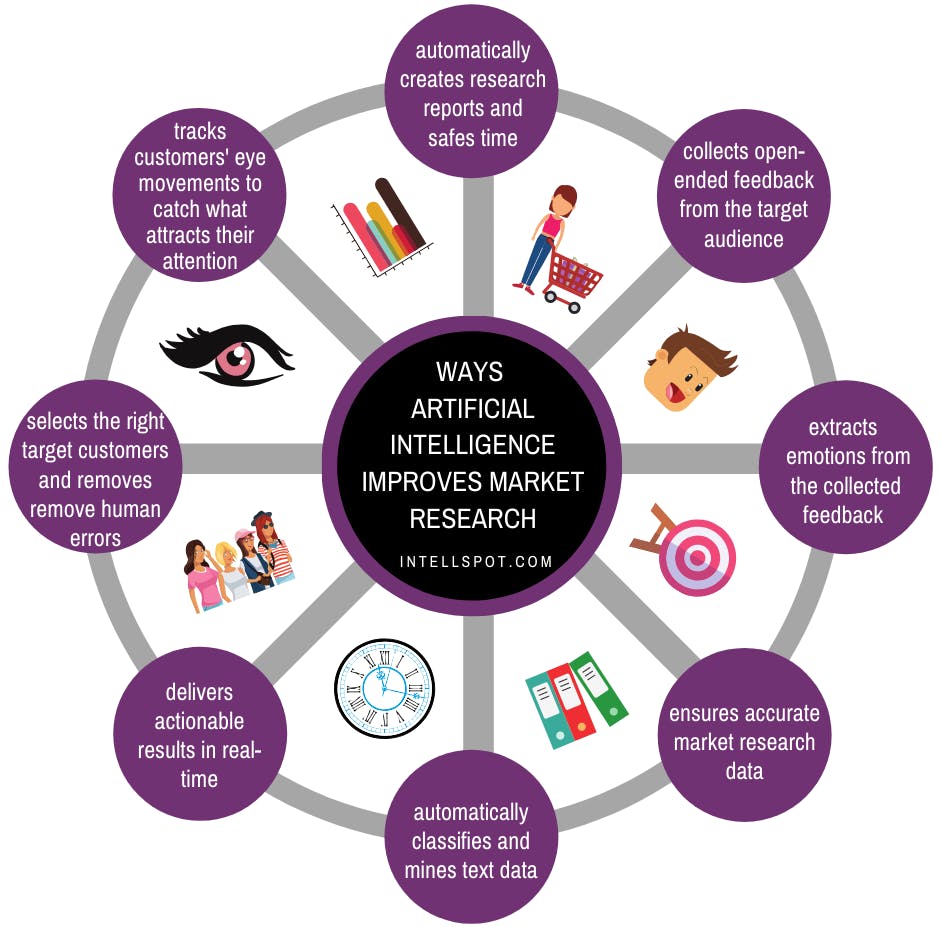
2. Recommendation System!:
Recommended system (engine) is a technology that recommends products or other items to users based on their likings and preferences. Although recommendation systems were initially used for music content sites, now their use has expanded to various industries.
Why is the Recommendation system used?:
Benefits users in finding items of their interest.
Help item providers in delivering their items to the right user.
Identity products that are most relevant to users.
Personalized content.
Help websites improve user engagement
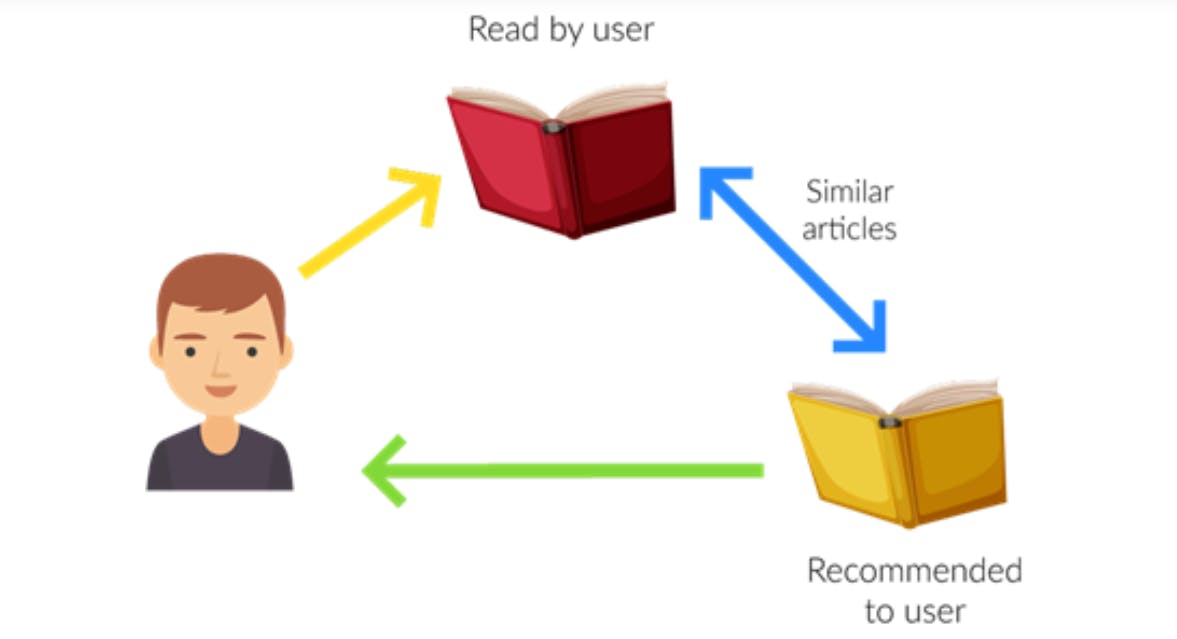
3. Opinion Mining(Sentimental Analysis):
AI has the incredible potential of providing reliable insight to decision-makers. Artificial Intelligence provides businesses with invaluable insights about consumers. This helps them to understand customer requirements well. It also helps retailers in predicting product demand.
Opinion mining also known as Sentiment analysis refers to the use of natural language processing, text analysis and computational linguistics to identify and extract subjective information from source materials.
In the end, Opinion mining helps businesses understand the feedback of people and the reasons for their likes and dislikes. All these opinions are gathered and analyzed correctly to drive meaningful insights. The information gleaned will help organizations gauge and predict the concerns of the silent majority.
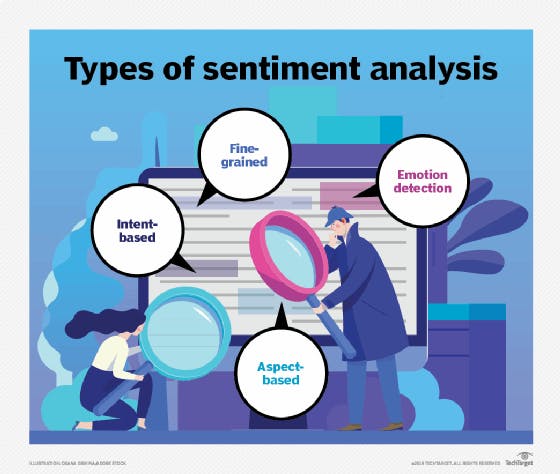
4. Augmented Analytics! :
Augmented Analytics, or AA, is the use of enabling technologies like machine learning (ML), artificial intelligence (AI), and natural language processing (NLP) to enhance how people explore and analyze data. The term was first coined by Gartner and described as the future of data analytics in a 2017 research report. And by the look of things, it indeed is the future of analytics.
It enhances already powerful technologies (data analytics and business intelligence), making it one of the most valuable solutions any business can implement.
According to a recent press release by Gartner, Augmented Analytics is going to be the next big trend which will transform the way analytics content is advanced, expended and shared.
Wise business decisions are made when business executives and decision-makers have reliable data and recommendations. AI not only improves the performance of both the individual members of the team but also the competitive edge of the business.
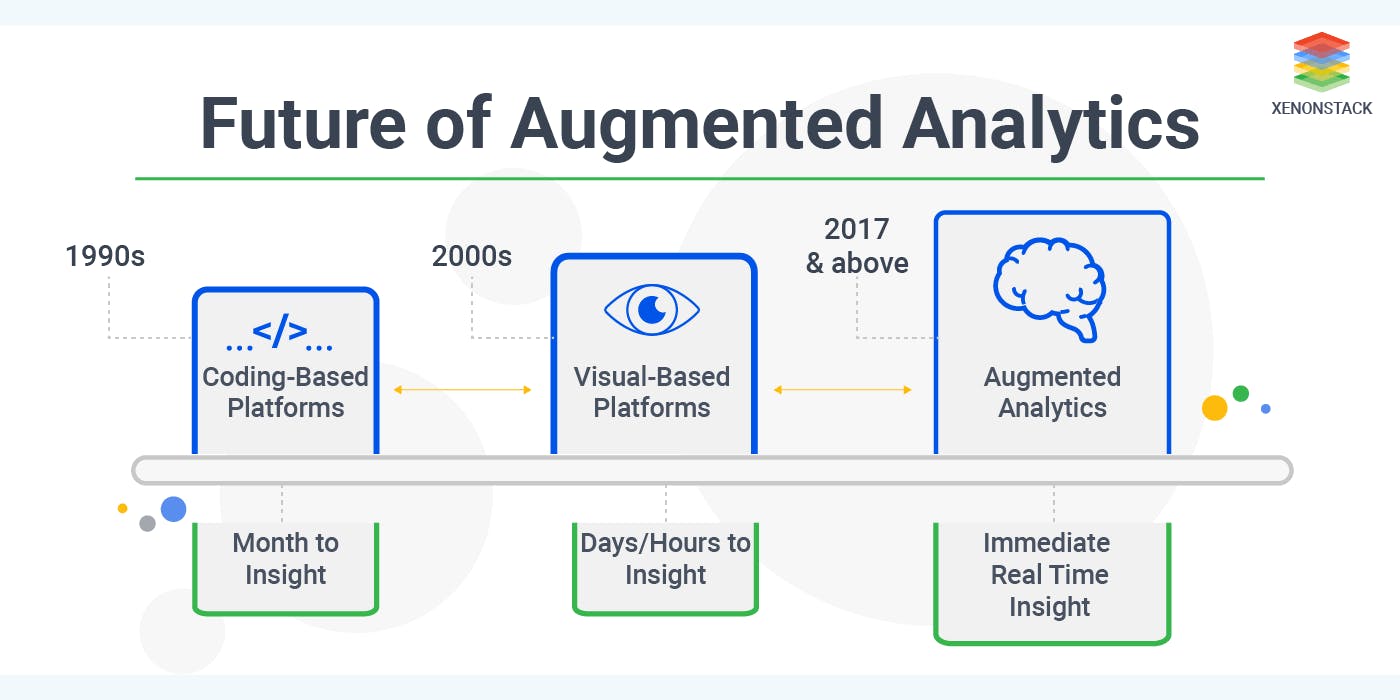
Conclusion(Personal opinion)👀:
In my opinion, It's important to note that AI is not a replacement for human decision-making, but rather a tool that can assist and augment it. In many cases, the best decisions are made by combining human judgment with the insights and analysis provided by AI.
It is an umbrella term that encompasses a wide range of technologies and approaches, including machine learning, natural language processing, and robotics. AI can be used to automate tasks, analyze and make predictions from data, optimize decision-making, and much more.
It is important to use AI responsibly and ethically and to ensure that it is used to augment and support human decision-making rather than replace it.
